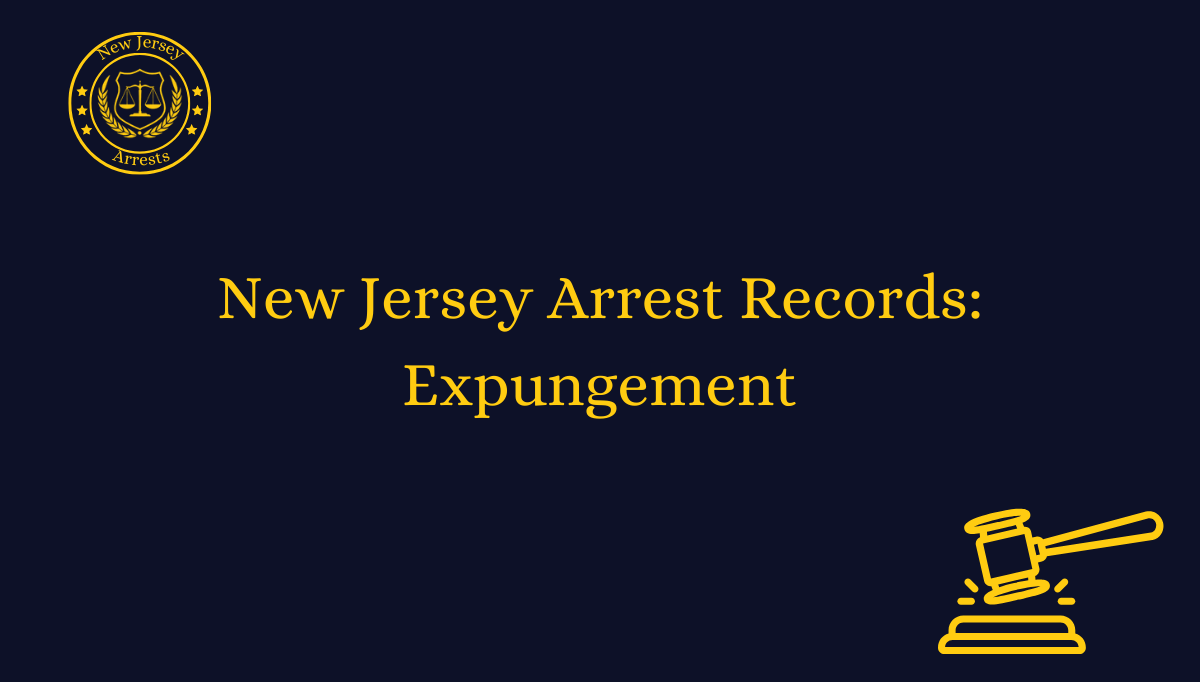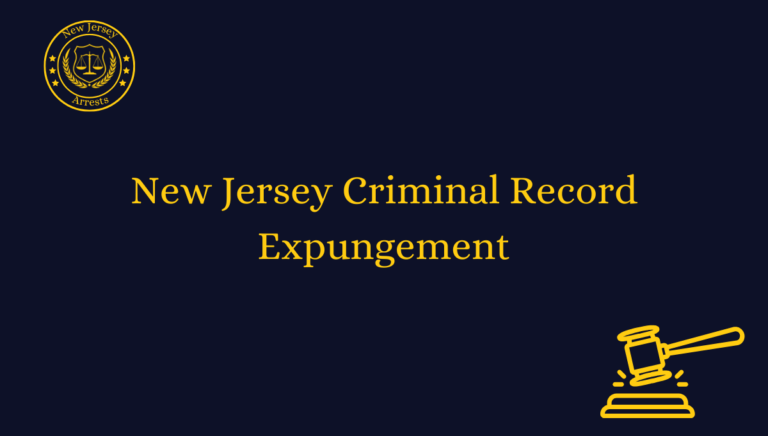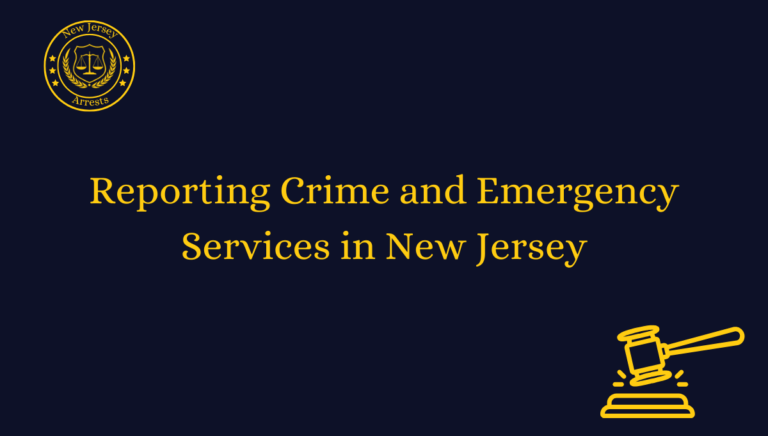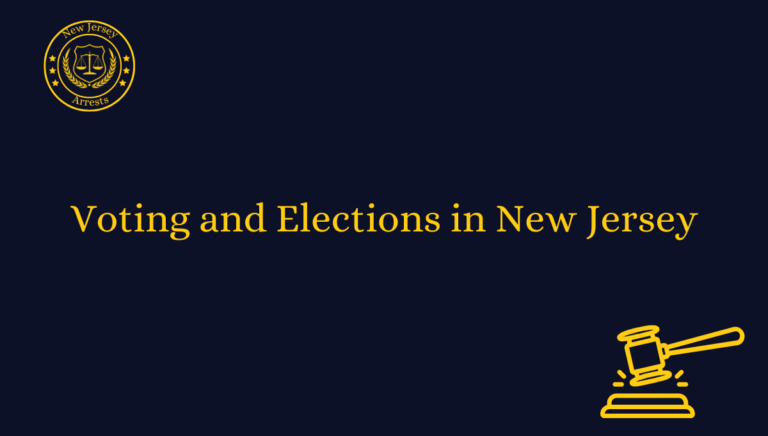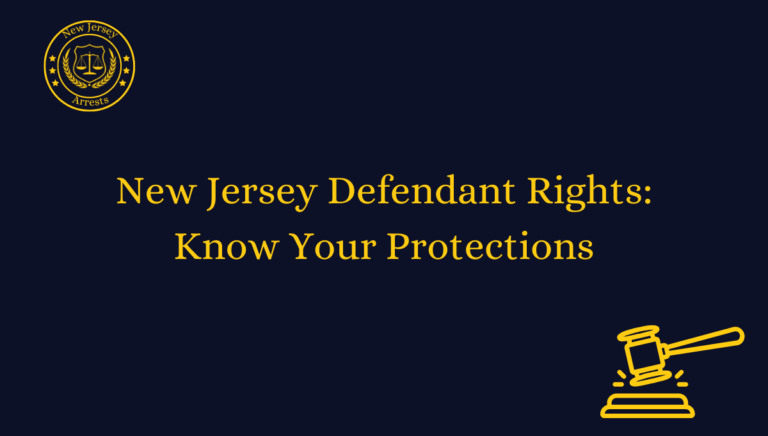New Jersey Arrest Records: Expungement
In the state of New Jersey, arrest records can have lasting consequences on individuals long after the incident occurred. However, there is a legal process known as expungement that offers a pathway to clear one’s record, providing a fresh start and opening up opportunities that may have been previously inaccessible.
New Jersey Arrest Records
New Jersey maintains a comprehensive database of arrest records, encompassing a wide range of offences from minor infractions to serious felonies. These records are accessible to law enforcement agencies, employers, and the general public, potentially hindering individuals’ prospects for employment, housing, and other opportunities.
Expungement Process in New Jersey
The expungement process in New Jersey allows eligible individuals to petition the court to have their arrest records sealed or destroyed. To be eligible for expungement, certain criteria must be met, including completion of all required waiting periods and compliance with specific offence categories.
The process involves filing a petition with the court, providing relevant documentation, and attending a hearing where a judge will review the case. If the petition is approved, the individual’s arrest record will be expunged, effectively erasing it from public view.
Benefits of Expunging Arrest Records
Expunging arrest records can have profound benefits for individuals seeking to move forward with their lives. By clearing their record, individuals may experience improved job prospects, as many employers conduct background checks before making hiring decisions. Additionally, expungement restores certain rights, such as the right to vote and serve on a jury, which may have been revoked due to the presence of a criminal record.
Legal Assistance and Resources
Navigating the expungement process can be complex, and individuals are encouraged to seek legal advice to ensure their petition is properly prepared and presented. Additionally, there are resources available, such as legal aid organizations and online guides, to assist individuals in understanding their rights and obligations regarding expungement.
Common Misconceptions about Expungement
Despite its benefits, there are several misconceptions surrounding expungement, including the belief that it completely erases all traces of a criminal record. In reality, expunged records may still be accessible under certain circumstances, such as for law enforcement purposes or when applying for certain professional licenses.
Factors to Consider Before Pursuing Expungement
Before pursuing expungement, individuals should consider various factors, including the impact of prior convictions on their eligibility and the potential legal consequences of expungement. While expungement offers a fresh start, it is essential to understand its limitations and implications fully.
Case Studies
Real-life examples of individuals who have successfully obtained expungements in New Jersey can provide insight into the process and its outcomes. These case studies demonstrate the tangible benefits of expungement in overcoming barriers to employment and housing.
Alternatives to Expungement
For individuals ineligible for expungement, there may be alternative options available, such as seeking a pardon or pursuing other forms of legal relief. Exploring these alternatives can provide avenues for mitigating the collateral consequences of a criminal record.
Future Trends and Developments
As laws and technologies evolve, the landscape of expungement may change, potentially offering new opportunities for individuals seeking relief from their past mistakes. Monitoring these developments can inform individuals’ decisions regarding expungement and other legal remedies.
FAQS
Explore our extensive Frequently Asked Questions (FAQ) section to find answers to common queries about Arrests NJ.
What is the process for expunging New Jersey arrest records?
The process for expunging New Jersey arrest records involves filing a petition with the court, which requires specific information such as the date of arrest, charges, and case number. It is recommended to consult with an attorney to ensure all necessary paperwork is completed correctly.
What are the eligibility requirements for expunging New Jersey arrest records?
To be eligible for expungement in New Jersey, certain criteria must be met. Generally, individuals who have completed their sentence, paid all fines and restitution, and have not been convicted of any subsequent offences may qualify. However, there are exceptions depending on the nature of the offence.
How long does the expungement process typically take in New Jersey?
The expungement process in New Jersey can vary in duration. On average, it takes approximately three to six months from the time the petition is filed to the final decision. However, factors such as the complexity of the case and the court’s workload can affect the timeline.
Can all arrests be expunged in New Jersey?
No, not all arrests can be expunged in New Jersey. Certain offences, such as serious crimes or those involving violence, are generally not eligible for expungement. However, it is best to consult with an attorney to determine if your specific arrest can be expunged.
Will an expunged record still appear on background checks?
Expunged records should not appear on standard background checks conducted by employers or landlords. However, certain entities, such as law enforcement agencies or government agencies, may still have access to expunged records under certain circumstances. It is advisable to consult with an attorney for a more comprehensive understanding of the limitations of expunged records.
How can I find an attorney to assist with expunging my New Jersey arrest records?
To find an attorney experienced in expungement cases in New Jersey, you can start by researching local law firms or using online legal directories. It is recommended to schedule consultations with a few attorneys to discuss your specific situation and evaluate their expertise and fees before making a decision.

